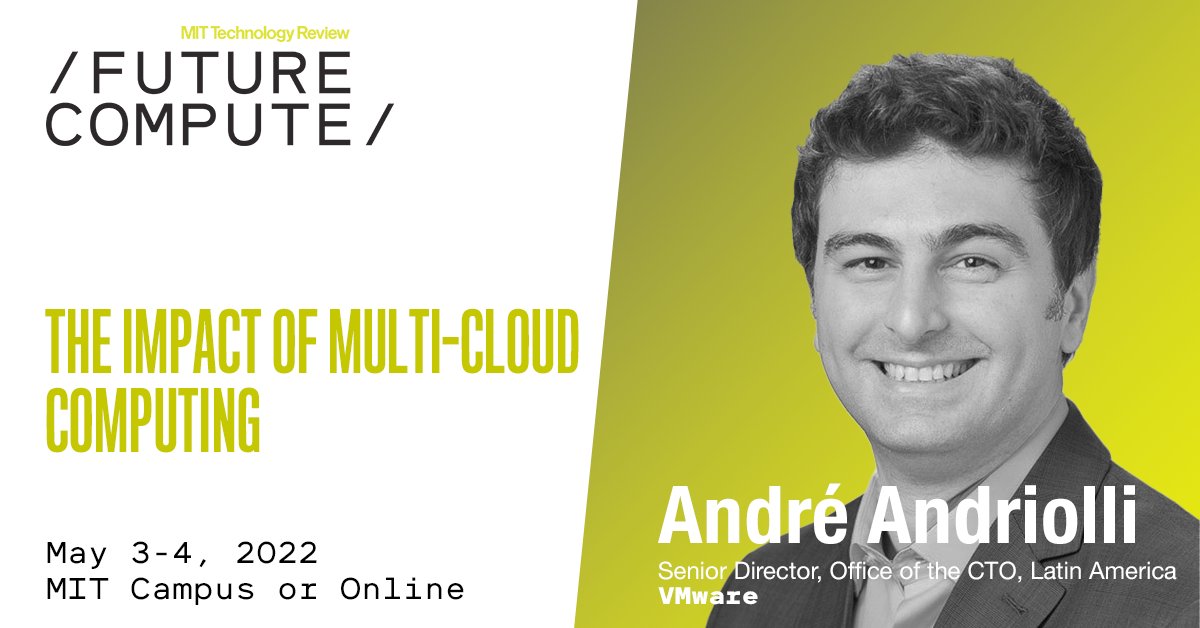
Welcome to #FutureCompute! Our signature computing conference will help you transform computing into competitive advantage. Join us and grab a virtual ticket here: trib.al/S14KnAq
#FutureCompute is all about the ways you can leverage computing innovation to get things done within your org. We have an incredible lineup of leaders from the forefront of their industries to talk about their experiences and insights with our editors and expert panelists.
Today, we’re going to talk about finding your edge, the ways you can compete with computing. In our first session, we’re going to dig in on how you can use hardware, open source, and data to get that competitive edge. #FutureCompute
On stage now, Mark Papermaster of @AMD is talking about the leading edge of hardware. He says the problems of tomorrow will require massive compute processing capabilities. #FutureCompute 

One thing that's changed the game? The growth of machine learning, he says. #FutureCompute
@mat asks, how has AMD thought about identifying its edge?
Papermaster says narrowing the company's core focus was key. #FutureCompute
Papermaster says narrowing the company's core focus was key. #FutureCompute
Adapted computing allows for programmable hardware, Papermaster says. If an algorithm changes, you can reprogram the hardware. #FutureCompute
Next up, we have @brianbehlendorf, the General Manager for the Open Source Security Foundation @theopenssf at the Linux Foundation. #FutureCompute
Defining your edge is as much about being innovative is as it about being collaborative, Behlendorf says. #FutureCompute
90% of a modern application's code base is open source, according to research Behlendorf is referencing. #FutureCompute
Software supply chains are under attack. Source integrity and build integrity are critical, @brianbehlendorf says. #FutureCompute
@brianbehlendorf @brianbehlendorf's key takeaways:
-Open source software is everywhere.
-Software supply chain attacks are increasing and disproportionally disruptive.
-Gotta be ready to update and remediate.
-No more black boxes--even for hosted software. #FutureCompute
-Open source software is everywhere.
-Software supply chain attacks are increasing and disproportionally disruptive.
-Gotta be ready to update and remediate.
-No more black boxes--even for hosted software. #FutureCompute
We’ve just heard from the hardware and the software sides of the discussion. Now, let’s turn to the data that makes it all work.
Our next speaker is Nancy King the Senior Vice President of Product Engineering for @Target. #FutureCompute
Our next speaker is Nancy King the Senior Vice President of Product Engineering for @Target. #FutureCompute
Nancy drives the overall technology vision, strategy & talent development for product engineering. Nancy & her team help bring Target’s purpose to life through world-class technologies and software capabilities across digital, merchandising, marketing, stores & supply chain.
How do you develop inferences to test in Target stores?
Experimentation is part of our DNA, King says. But a key piece is Target's continuous platform. #FutureCompute
Experimentation is part of our DNA, King says. But a key piece is Target's continuous platform. #FutureCompute
King says Target tries to process their data at the edge when possible. #FutureCompute
King says Target is a heavy user of open source and a heavy contributor back to open source. #FutureCompute
Are you using AI and machine learning to project shopping trends?
Short answer: no, King says. Basic modeling and forecasting does the job for now. #FutureCompute
Short answer: no, King says. Basic modeling and forecasting does the job for now. #FutureCompute
That brings us to the end of #FutureCompute's first chapter. More to come, and it's still not too late to join us. Virtual tickets available here: trib.al/S14KnAq
• • •
Missing some Tweet in this thread? You can try to
force a refresh






